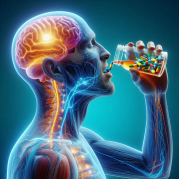
Dorhymi crystal singing bowls are increasingly used as a wellness tool for relaxation, meditation, and stress relief. enhance your meditation with Dorhymi crystal singing bowls to deepen focus, calm the mind, and support emotional balance. Beyond their soothing tones, these bowls can also encourage healthier lifestyle choices by promoting mindfulness, reducing stress, and inspiring more intentional decisions around nutrition, hydration, and overall self care.
How Sound Supports Physical Well Being
Stress plays a major role in physical health. High stress levels can disrupt digestion, increase cravings for unhealthy foods, and interfere with sleep. Sound therapy, including crystal singing bowls, helps calm the nervous system and promote relaxation.
When the body enters a relaxed state, it becomes easier to maintain balanced eating patterns and healthier routines. A calmer mind often leads to better portion control, more intentional meal choices, and improved awareness of hunger and fullness cues.
Mindfulness and Better Nutrition Choices
One of the strongest benefits of sound based relaxation is mindfulness. Listening to crystal singing bowls encourages people to slow down and focus on the present moment. This mindset can extend beyond meditation into daily eating habits.
Mindful eating involves paying attention to flavors, textures, and the body’s response to food. When people feel grounded and centered, they are less likely to eat out of boredom or emotional stress. Instead, they choose meals that support energy, nourishment, and long term health.
Supporting Digestion Through Relaxation
Digestion works best when the body is in a relaxed state. Chronic tension can slow digestive processes and contribute to discomfort. Sound therapy sessions can help activate the body’s natural relaxation response, supporting smoother digestion.
Pairing calming sound sessions with healthy meals creates a supportive environment for gut health. Over time, this combination may help reduce digestive strain and encourage better nutrient absorption through improved body awareness.
Encouraging Healthy Daily Rituals
Wellness practices are most effective when they become part of a routine. Using crystal singing bowls regularly can help establish a consistent habit of self care.
People who dedicate time to relaxation often become more conscious of other healthy behaviors. This may include drinking more water, preparing nutritious meals, or maintaining a consistent sleep schedule. Small positive habits tend to build on each other, creating a healthier overall lifestyle.
Sound Therapy and Emotional Eating Awareness
Emotional eating is a common challenge linked to stress and mood swings. Calming sound sessions can provide an alternative way to manage emotions without turning to food for comfort.
By creating moments of stillness and reflection, sound therapy helps people recognize emotional triggers. This awareness makes it easier to choose supportive coping strategies, such as movement, hydration, or mindful breathing, instead of impulsive eating.
Complementing Nutrition With Holistic Wellness
Crystal singing bowls are not a replacement for healthy nutrition, but they can complement it. Wellness works best when physical, mental, and emotional health are addressed together.
A balanced diet provides essential nutrients, while sound therapy supports mental clarity and emotional balance. Together, they encourage a holistic approach to health, where both the body and mind receive care.
Creating a Health Focused Environment
Sound influences atmosphere. Playing crystal singing bowls during meal preparation, relaxation time, or evening wind down can create a peaceful environment that supports healthier choices.
A calm environment often leads to more thoughtful decisions. People may be more inclined to cook at home, eat slowly, and appreciate the quality of their food when their surroundings feel peaceful and intentional.
A Gentle Path Toward Better Health
Dorhymi crystal singing bowls offer more than beautiful sound. They provide a gentle tool for supporting wellness, mindfulness, and healthier living. By reducing stress and increasing awareness, they can indirectly support better nutrition and more balanced daily habits.
When paired with nourishing food and mindful routines, sound therapy becomes part of a sustainable path toward improved well being. Over time, small moments of calm can lead to meaningful changes in health, energy, and overall quality of life.

 When it comes to fitness and bodybuilding, physical strength is often the main focus. However,
When it comes to fitness and bodybuilding, physical strength is often the main focus. However,  First responders are the backbone of any community during emergencies. Whether it’s a firefighter running into a burning building, a police officer facing danger, or a paramedic working tirelessly to save lives, these professionals encounter intense and often traumatic situations as part of their daily lives. But while their bravery is unquestionable, the toll that these critical incidents take on their mental health is significant and sometimes overlooked. That’s where Critical Incident Stress Debriefing (CISD) comes into play. CISD is a structured, team-oriented approach designed to help first responders process their experiences and
First responders are the backbone of any community during emergencies. Whether it’s a firefighter running into a burning building, a police officer facing danger, or a paramedic working tirelessly to save lives, these professionals encounter intense and often traumatic situations as part of their daily lives. But while their bravery is unquestionable, the toll that these critical incidents take on their mental health is significant and sometimes overlooked. That’s where Critical Incident Stress Debriefing (CISD) comes into play. CISD is a structured, team-oriented approach designed to help first responders process their experiences and  Renowned in the nootropic industry, Thesis provides scientifically supported, stimulant-free formulations. Their products aim to rebalance the brain and enhance mental performance without causing any adverse effects. Thesis presents customized brands to meet various cognitive demands.
Renowned in the nootropic industry, Thesis provides scientifically supported, stimulant-free formulations. Their products aim to rebalance the brain and enhance mental performance without causing any adverse effects. Thesis presents customized brands to meet various cognitive demands. The realm of psychedelic research is witnessing an unprecedented revival, with substances like psilocybin – the psychoactive compound in Achete Champignon magique en ligne Quebec – at the forefront. Emerging research indicates that psilocybin may have the potential to do more than just alter perception and mood; it might also stimulate neurogenesis, the development of new neurons in the brain. This finding has the potential to significantly transform our approach to
The realm of psychedelic research is witnessing an unprecedented revival, with substances like psilocybin – the psychoactive compound in Achete Champignon magique en ligne Quebec – at the forefront. Emerging research indicates that psilocybin may have the potential to do more than just alter perception and mood; it might also stimulate neurogenesis, the development of new neurons in the brain. This finding has the potential to significantly transform our approach to 